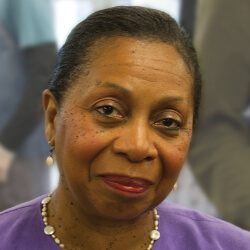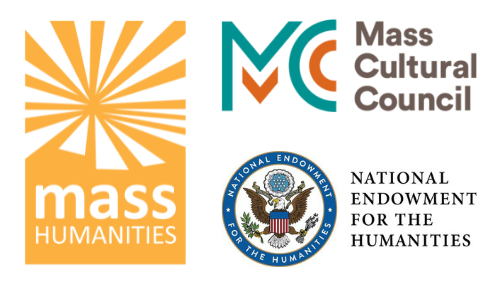History Cambridge Continues Anti-Racism Work With Two New Grants from Mass Humanities
Mass Humanities has awarded two grants to History Cambridge that will help us continue our anti-racism work that we began in earnest in 2020 with our new Strategic Plan. The first is a Black History grant in the amount of $11,726 that will help us bring Untold Stories of Black Cambridge to the community in four programs that will take place through 2022. The second is a $15,000 SHARP grant that will facilitate a more user-friendly website that helps people better connect to all aspects of Cambridge history.
UNTOLD STORIES
History Cambridge presents Untold Stories of Black Cambridge. As part of its transformation to an audience-centered, inclusive organization, History Cambridge has partnered with Mass Humanities, state-based affiliate of the National Endowment for the Humanities, and Massachusetts Cultural Council to offer four special events that are free and open to the public throughout 2022.
From its founding in 1905 through the early 21st century, the Cambridge Historical Society operated as a conventional local historical society. Membership was exclusive, and the histories preserved failed to represent the city as a whole. In 2021, the organization changed its name to History Cambridge, and with that change came a new humanities-driven mission: We engage with our city to explore how the past influences the present in order to shape a better future. History Cambridge weaves past, present, and future together, recognizing that this is how people experience their city.
“By expanding our audience and empowering our community to think critically about its shared history, we’re working to collectively build a better Cambridge,” said Executive Director Marieke Van Damme.
History Cambridge’s theme for 2022 is How Does Cambridge Work? Programs will explore the working life of the city and its residents. They will also examine the many types of labor—paid and unpaid—that have kept Cambridge running over the past four centuries.
Funding from Mass Humanities brings these efforts under the Expand Massachusetts Stories umbrella, an initiative which aims to collect, interpret and share narratives about the commonwealth, with an emphasis on the voices and experiences that have gone unrecognized, or excluded from public conversation. History Cambridge will host four programs about the history of Black and African American people in relation to its annual theme. All events will be free and open to the public.
Advisors for this project include Ms. Paula Paris and Dr. Caitlin Galante-DeAngelis Hopkins. Ms. Paris is a member of the Cambridge Historical Commission and a co-founding member of the Cambridge Black History Project. Dr. Galante-DeAngelis Hopkins is a historian specializing in memory, monuments, and material culture. She has a PhD from Harvard and served as the Research Associate for the Harvard and Slavery Project for two years.
“I always recommend that public history programming should be designed in collaboration with community members and with an eye toward more inclusive definitions of evidence and expertise,” said Dr. Galante-DeAngelis Hopkins.
“Aside from images of slavery and victimhood, the collective significance of the individuals and communities of color has largely been overlooked, despite bodies of evidence,” Ms. Paris added. “Expanding Cambridge’s stories with those of Black Cantabrigians, will undoubtedly expand Massachusetts stories, offering a more complete picture of the state’s history, one that makes everyone proud.”
History Cambridge is committed to collecting and sharing stories of perseverance, resilience, and celebration. The goal of Untold Stories of Black Cambridge is to create programs about the city’s Black history that are as diverse and nuanced as the ones done about, by, and for white residents.
“We want to amplify and preserve these stories,” said Van Damme. “Our goal is to add long-missing pieces to the rich mosaic of Cambridge history.”


RETHINKING CAMBRIDGE HISTORY
History Cambridge recognizes that here are many voices that have been left out of the historical record, and we’re working to change that. We see our website is a pivotal tool that should allow people to interact with history in ways that are relatable and accessible. Our website redesign will honor the myriad of Cambridge stories and allow us to truly connect its people to history.
“History is happening every day, all the time. We want a website that reflects that,” said History Cambridge Executive Director Marieke Van Damme. “We see ourselves as a facilitator, a connector of people, places, culture, history—our new website will be designed to support that ideal. The bottom line is that our website will be a user-friendly place, where anyone interested in Cambridge history can find what they’re looking for.”
Which Untold Stories would you like to hear? Submit your questions and comments to History Cambridge Program Manager Beth Folsom.

